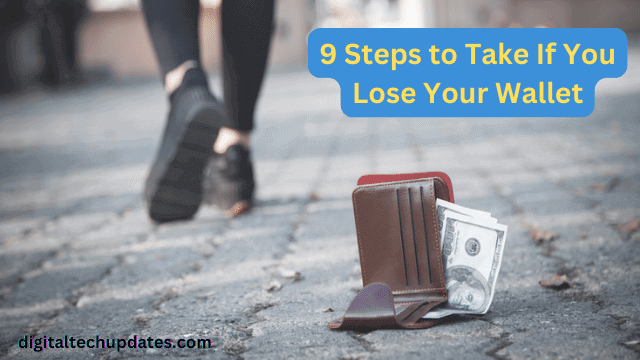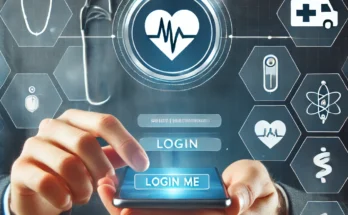Losing a wallet can be an incredibly stressful experience. Without focusing on the fear of identity theft or financial losses, taking a few proactive steps to minimize or avoid these scenarios completely is important. Notifying your bank, freezing your accounts, and other preventive measures may seem unimportant while in panic mode, but taking the time to do so can pay off in the long run. Whether you’ll find your wallet again or not, going through this nine-step procedure will grant you peace of mind as these steps protect you from potential jeopardy. So if ever faced with such a situation, stay alert and don’t forget to complete each step!
Lock Your Cards
After a data breach, securing your accounts should be your top priority. By locking your cards quickly and easily, you can ensure no one is running up charges on your dime. The process is simple enough – just give the customer service number listed on the back of each card a call or log into your online banking account and put a temporary hold on the cards in question. It’s a great way to control the situation and ensure you don’t have any unwelcome surprises come statement time! To make it easier to stay on top of potential issues, paystub can be used to quickly review all financial matters and confirm everything is accurate in real-time.
Replace Your Debit and Credit Cards
Replacing lost or stolen cards is important to protecting your financial security. Once you confirm that your cards have been locked, contact each bank or credit card company and request new ones. It may be stressful, as you will need to provide identification when asking for replacements, but with valid forms of ID to back up the process, you’ll soon have the peace of mind that comes with being secure again. Taking action quickly is essential in cases like this; don’t hesitate to get those new cards!
Contact Police
When your wallet has disappeared, your first thought may be that you misplaced it. However, if you think there’s a chance that someone has taken it, it’s important to take appropriate action right away and contact the police to file a report so you can protect yourself. This is key in preventing potential fraud, or identity theft, as all your valuable information and personal documents are kept inside that wallet. Ensure you keep a copy of the police report handy so that if any suspicious activity ever arises on any of your accounts in the future, the information you will need to investigate it properly is accessible.
Change Your Passwords
Recently, wallets have gone beyond just holding money; they also store passwords that can be easily accessed if lost or stolen. For this reason, it’s critical to update the passwords stored in your wallet as soon as you become aware of their whereabouts. Doing so will give an extra layer of protection and safeguard your account from anyone who may access them without the proper authorization. So, don’t forget to change those passwords if you recently lost your wallet!
Check Your Credit Report Regularly
Preventing identity theft can be a challenge, but there are measures that you can take. One important step is to set up a fraud alert with one of the three major consumer credit reporting agencies. After doing that, it’s wise to watch your credit report occasionally. Look out for suspicious or unauthorized changes, which could indicate fraudulent activity. Of course, getting ahold of your credit report more than once a year usually requires paying fees – but it doesn’t have to! You’re entitled to free copies of all three reports once every 12 months – and AnnualCreditReport.com is the place to get them! Taking these precautions can also help you become wealthy by protecting your identity and credit information and taking proactive measures such as setting fraud alerts and regularly monitoring your accounts for potential issues.
Set Up a Fraud Alert
If you ever find yourself in the unfortunate position of having your wallet stolen, one of the most important things to do is protect yourself from potential identity fraud. Setting up a fraud alert with one of the three major consumer credit reporting agencies (Equifax, Experian, TransUnion) is a great way to start. This alert will notify creditors that they should be especially diligent in verifying someone’s identity before approving any new accounts related to your name or authorizing any changes to existing ones. Adding this extra layer of protection means you can rest easy knowing that any attempts at unauthorized access have already been stopped.
Notify the DMV
Keeping your driver’s license information secure is key to preventing identity theft. If you find yourself in a situation where your driver’s license information is suddenly stored in your wallet, immediately contact the Department of Motor Vehicles (DMV) and ask for their assistance. They will help you verify if anyone has attempted to use the details fraudulently, such as by applying for a duplicate license with false personal data. Informing the DMV right away could save you from a possible headache in the future and contribute to keeping our roads safer.
Monitor Bank Accounts and Credit Card Statements
Regarding your bank and credit card accounts, being too vigilant is no such thing. Even if your account information is kept safely out of sight, reviewing every transaction meticulously to determine any unexpected and potentially fraudulent activity is essential. After all, you would be the first to lose from letting a potential scam go unnoticed. Therefore, it’s best practice to double-check that each charge on your statements is legitimate for peace of mind. The same goes for your credit card statement – thoroughly examine it each month, reporting anything that looks suspect without delay. Staying alert keeps you from falling victim to financial scams and potential loss of funds!
Keep an Eye Out For Suspicious Emails or Phone Calls
While losing your wallet can be a huge letdown, identity thieves may try to capitalize on the situation. It’s important to stay vigilant over the following weeks and months and watch for suspicious emails or phone calls requesting personal information about lost wallets. This could include Social Security numbers, birth dates, addresses, etc., so it’s best not to share anything until you have verified who is asking— Even if they appear to be an official source like a bank or government agency. Better safe than sorry!
Conclusion
Don’t panic and act fast if you find yourself unfortunate to have lost your wallet! These nine steps after losing your wallet will help minimize any potential damage to your identity or financial standing. Embark on this journey with confidence that you are taking the necessary measures to protect yourself and prevent any serious consequences related to its loss. Even if it makes for a bit of an inconvenience at first, putting in this extra effort now is well worth it, so don’t delay taking action!




